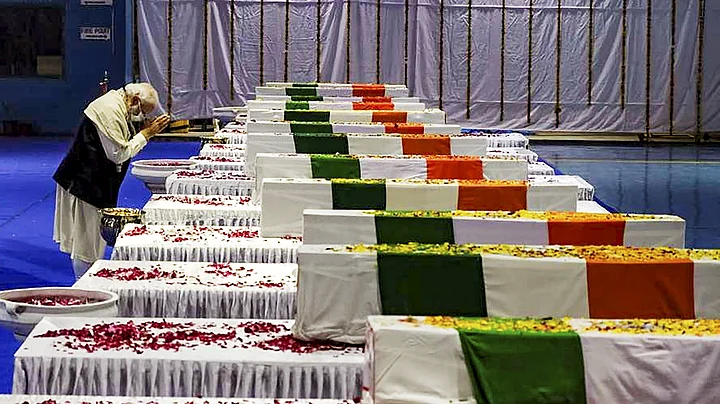The probe into the helicopter crash in Tamil Nadu that killed the country’s first Chief of Defence Staff, General Bipin Rawat, and 13 others, is expected to be submitted to the Air Force Chief next week.
The investigation is led by Air Marshal Manavendra Singh, who reportedly examined all the likely scenarios for the crash, including possible human or technical errors.
Sources told The Indian Express that the likely cause was Controlled Flight into Terrain (CIFT) – which means that neither the helicopter nor the pilot was at fault, but reduced visibility caused by bad weather could have resulted in the crash.
The black box of the helicopter had been recovered soon after the crash, and the probe included going through the Flight Data Recorder (FDR) and Cockpit Voice Recorder (CVR).
The tri-services court of inquiry, headed by Singh, will legally vet the findings of the probe to ensure that all protocols were followed.
On 9 December, General Bipin Rawat, his wife, and 12 others died as their helicopter crashed while making a descent amid bad weather. General Rawat was headed to the Defence Services Staff College in Wellington in Tamil Nadu. The accident site showed trees reduced to broken branches under the impact of the crash, and flames from the chopper engulfing the wooden logs, which resulted in billowing smoke. Locals and rescue workers scurried to douse the fire.
Group Captain Varun Singh, the only person to have survived the Mi-17V5 chopper crash, succumbed to his injuries on 15 December.
On 9 December, Defence Minister Rajnath Singh informed the Parliament that the helicopter had taken off from the Sulur Air Base at 11.48 am and was expected to land at Wellington by 12.15 pm. The Air Traffic Control at Sulur Air Base lost contact with the helicopter at approximately 12.08 pm.
(At The Quint, we question everything. Play an active role in shaping our journalism by becoming a member today.)
